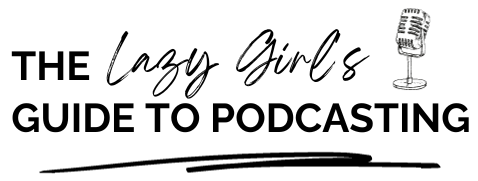
Training vs Education: What’s the Difference?
The terms training and education are often used interchangeably, but there’s actually quite a big difference between the two.
In short, training is teaching someone how to perform certain skills.
Education is about gaining knowledge that does not necessarily require practice in order to apply it to your field of work or interest.
Therefore, education often includes more theory behind WHY something is happening or being carried out.
Both education and training play an important role in online courses and helping people develop in life and become better at their jobs.
But, when you get into the education and training game, it’s important to know the differences between the two and which one you’re providing for your students.
Although sometimes used interchangeably, the terms ‘training’ and ‘education’ actually mean two different things.
Let’s dive into the two terms in a little more detail.
What is training?
Before we dive into what makes training different from education, let’s take a minute to define each term.
You may also see these terms interchangeably. In some instances, they’re basically synonyms; in others, training is done only, while education is used more broadly.
Training is about learning to do a task or skill to perform a certain duty (i.e., how to drive a car, how to use Microsoft Word).
For example, when teaching skills online, you are most likely training someone.
If you are delivering skills for creating Pinterest pins in Canva, for example, this is training. This is because you are giving someone the skills and tactics to perform a certain task. You aren’t necessarily giving them information on the psychology of colour choice, how people ‘read’ an image, or how the Pinterest algorithm works. This would be the education side of what you’re teaching, and as it isn’t overly relevant to teaching someone to design a basic pin, you’ll probably leave that information out. Particularly if someone is very new to the skill they are learning.
What is education?
On the other side of the coin, education is a more general term. It refers to learning and skills in a broader context. Education is about gaining knowledge and therefore tends to be much broader than training.
Education can be delivered in a variety of ways. For example, taking online courses, reading books or blogs, and taking face-to-face classes.
There can be certain overlaps between training and education. They are not mutually exclusive. For example, you could have training in plumbing from an apprenticeship but pursue education by reading blogs and books related to plumbing work and to understand the theory behind why you’re completing a skill in a certain way.
Providing training online
There are literally thousands of online training courses available online, which means that students are spoiled for choice when it comes to wanting to upskill themselves.
If you’re a blogger creating a course, training is most likely what you will be offering.
When it comes to providing training online, some good techniques are:
- Providing step-by-step instructions for students to download and refer to later
- Including a video demonstration of the skill
- Including troubleshooting tips and advice if the student struggles with the skill the first time around
- Offering a blended learning option where students can speak directly to you as the trainer to gain additional support
Providing education online
Providing education online is very similar to offering online training. You still need and want your students to get the most amount of value from your course in a way that is meaningful to them.
Effective online education strategies include:
- Massive Open Online Courses (MOOCS)
- Online quizzes to help students identify gaps in their knowledge
- Assessments to test your students’ knowledge
- Online forums where students can interact with each other to develop their knowledge and understanding of a subject
Which is better? Education or training?
I’ve been asked this question a lot in my career: is education or training better?
And the answer is always the same.
It depends on what your end goal is.
For example, there are some skills and careers which you can only get via training, and others via education. Some need a blend of both.
For example, for an individual to go into nursing, neither education nor training on their own is enough.
Instead, both are needed.
In the UK, to become a nurse, you would need a university education. Within that course, you would receive training to apply your theory and learn skills for certain healthcare situations.
In another example, for someone wanting to use WordPress, training is probably the best solution. When learning to build your website, you don’t need the background knowledge of open source software or alt tags. You need the training to know how to insert a suitable alt tag for your images and produce blog posts.
Is training and teaching the same?
In the same way that training and education are not the same, training and teaching aren’t the same either.
Training is about learning to do a task or skill to perform a certain duty.
Teaching, on the other hand, is about sharing knowledge and experiences in an organised format.
Core differences between training and education
The core difference between training and education is that training is about gaining a skill or performing a duty, while education is about gaining knowledge. Training teaches you how to do something specific, whereas education provides you with factual information that can come in handy at any time in your life.
Below are the key differences between education and training.
Education
- Education is about gaining knowledge
- Can be relevant currently or in the future
- Tends to be more generalised
- Tends to be taught in a classroom environment (either online or face-to-face)
- Includes professional courses such as GCSE’s, A-Levels, High School Diploma, International Baccalaureate, degrees, Masters degree, Doctorates
Training
- Training is about gaining a skill or performing a task
- Currently relevant
- Tends to be specific information
- Tends to be taught ‘on the job’ (either online or face-to-face)
- Includes professional courses such as BTECs, T-Levels, NVQ, RQF, QCF
- Includes courses teaching you to perform a certain skill, i.e. building a blog, making YouTube videos, using software such as Pinterest or Canva





